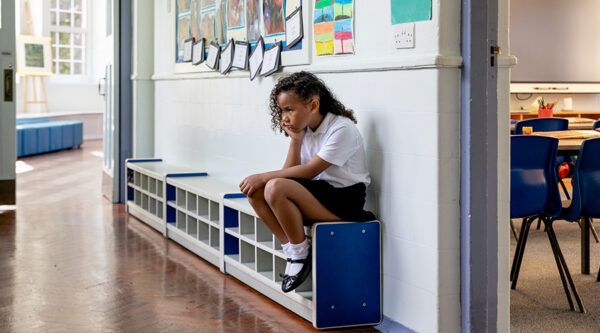

Back in July, the Department for Education published its suspensions and permanent exclusions data for the academic year 2022/23. The data, which covers state schools in England, shows that last academic year there were 786,961 suspensions and 9,376 permanent exclusions.
Alone, this data offers a very limited picture. However, when compared with previous academic years, it is clear that suspensions and permanent exclusions have significantly increased. In 2021/22 there were 578,280 suspensions, and 6,495 permanent exclusions. The most commonly recorded reason for suspensions and permanent exclusions has, however, remain unchanged: persistent disruptive behaviour.
Appealing the headteacher’s decision
When a child is suspended or permanently excluded from school, the child’s parents have the right to appeal the headteacher’s decision, and the governing board must consider the parents’ representations.
Where the governing board convenes a meeting to consider the suspension or permanent exclusion, certain parties must be invited. These include the parents and any representative or friend, the headteacher, and the child if they are 18. It should be kept in mind that, whilst the governing board must make reasonable endeavours to arrange the meeting within the statutory time limits, its decision will not be invalid if it was not made within these time limits.
When establishing the facts in relation to a suspension or permanent exclusion the governing board must apply the civil standard of proof, i.e., ‘on the balance of probabilities’ – it is more likely than not that a fact is true – rather than the criminal standard of ‘beyond reasonable doubt’. The decision will be made as to whether the decision of the headteacher was lawful, reasonable, and procedurally fair.
What can the governing board decide?
In the case of a suspension which does not bring the child’s total number of days of suspension to more than five in a term, the governing board cannot decide to reinstate the child and is not required to arrange to meet with the parents.
Where the suspension means that the child would be excluded for more than five but not more than 15 school days in a term, if the parents make an appeal the governing board must consider and decide within 50 school days of the suspension whether the child should be reinstated. In the absence of any representations from the parents, the governing board is not required to meet and cannot direct the reinstatement of the pupil.
There are circumstances where the governing board must meet to consider whether reinstatement would be suitable within 15 school days, regardless of whether the parents have made an appeal:
- It is a permanent exclusion
- It is a suspension which would bring the child’s total number of school days out of school to more than 15 in a term
- It would result in the pupil missing a public examination or national curriculum test.
In some cases, it may be that the decision of the governing body is of little practical impact, because the child may have already returned to school following the expiry of a suspension, or the parents may have made it clear that they do not wish for their child to be reinstated. However, the governing board must still meet to consider whether the child should or would have been officially allowed back into the school.
Independent review panel
If the governing body decides against reinstatement where a child has been permanently excluded, within 15 school days the parents can request an independent review. Schools should keep in mind that parents may request that an independent review panel is convened even if they did not make representations to, or attend, the meeting at which the governing board considered reinstatement. The panel is formed of five individuals:
- A lay member to chair the panel who has not worked in any school in a paid capacity, disregarding any experience as a school governor or volunteer
- Current or former school governors – of a maintained school, members of a PRU management committees and directors of academy trusts – who have served as a governor for at least 12 consecutive months in the last five years, provided they have not been teachers or headteachers during that time
- Headteachers or individuals who have been a headteacher within the last five years.
Like the governing board, the independent review panel must apply the civil standard of proof rather than the criminal standard of ‘beyond reasonable doubt’. In doing so, it can make a majority decision to:
- Uphold the governing board’s decision not to reinstate
- Recommend that the governing board reconsiders reinstatement
- Quash the governing board’s decision and direct that the governing board reconsiders reinstatement.
However, the decision to quash a governing board’s decision not to reinstate may only be made in certain circumstances. This is when the decision was flawed owing to illegality, irrationality, and procedural impropriety.
Schools should be conscious that, whilst new evidence may be presented to the panel, the school may not introduce new reasons for the permanent exclusion or the decision not to reinstate the pupil. The panel must only take account of the evidence that was available to the governing board at the time of making its decision not to reinstate.
This can include any evidence that the panel considers would, or should, have been available to the governing board and that it ought to have considered if it had been acting reasonably. If evidence is presented which it is unreasonable to expect the governing board to have been aware of, the panel can take account of the evidence when deciding whether to recommend that the governing board reconsider reinstatement.
Where the panel directs or recommends that the governing board reconsider whether the child should be reinstated, the governing board must do so within 10 school days of being given notice of the panel’s decision.
Steps for schools
It is clear from the statistics surrounding the number of children being suspended or permanently excluded from school that behavioural issues continue to be a challenge for schools. Accordingly, we advise that schools review their behaviour and suspension and exclusion policies to ensure that they accord with the current statutory guidance, and ensure that all staff are trained in implementing the policies.










